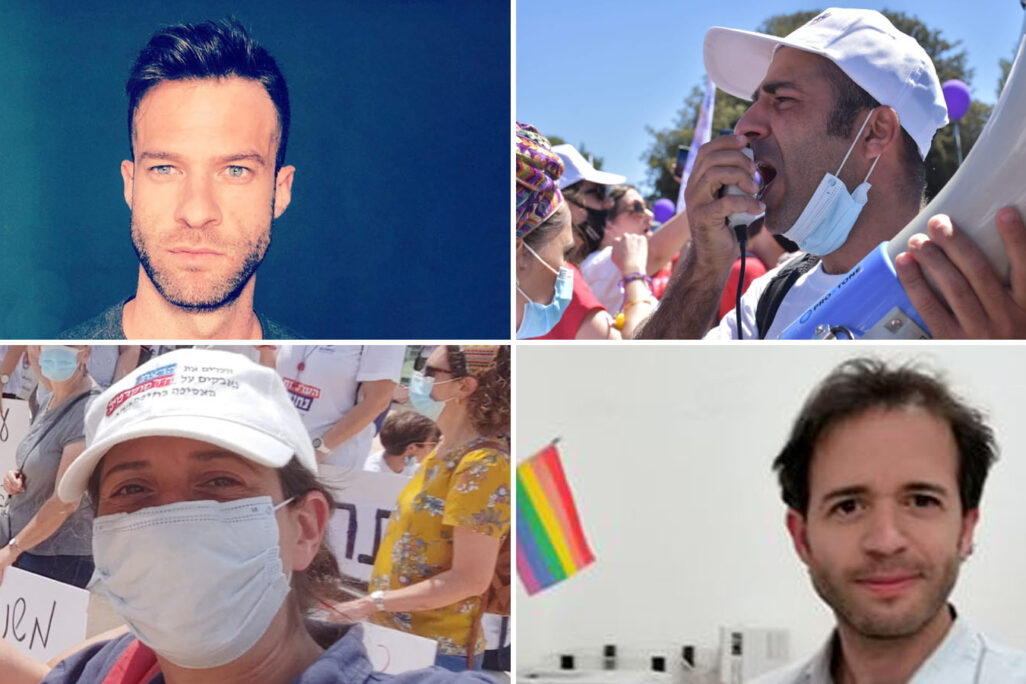
The tent protests began nine years ago. Starting with one small tent pitched on Rothschild Boulevard in Tel Aviv to protest high housing prices, so-called tent cities sprang up in dozens of localities across Israel. Hundreds of thousands of people demonstrated, demanding a welfare state under the slogan “the people demand social justice.” It was the largest socio-economic protest in Israel ever.
Nine years later, the Israeli public has taken to the streets again, protesting the lack of adequate problem solving in the current socio-economic crisis brought on by coronavirus. Four of the leaders of the original protest reflect on what has happened since then, note the similarities and differences between the protests, and give out advice to the protesters and protest leaders of today.
"The true power of this nation is the change that people can bring from below."
Amnon Rabinovich (36), director of Educational Innovation Projects. Former teacher and principal of Ziv Middle School in Jerusalem | In 2011: one of the leaders of the tent protest in Jerusalem
Protest in 2011: "The protest camp in Jerusalem and Tel Aviv began on the same day. Daphni [Leef] sent out an email, and we said to ourselves that something cool was happening. I was in my second year as a teacher, and at the demonstrations on Saturday, I found a group of my students sitting in the corner. They had come to protest and shout along with everyone. I hadn’t seen them in a month, it was very powerful. I feel sure that my students that were there will believe more in the power of the country to change, and will be more democratic.”
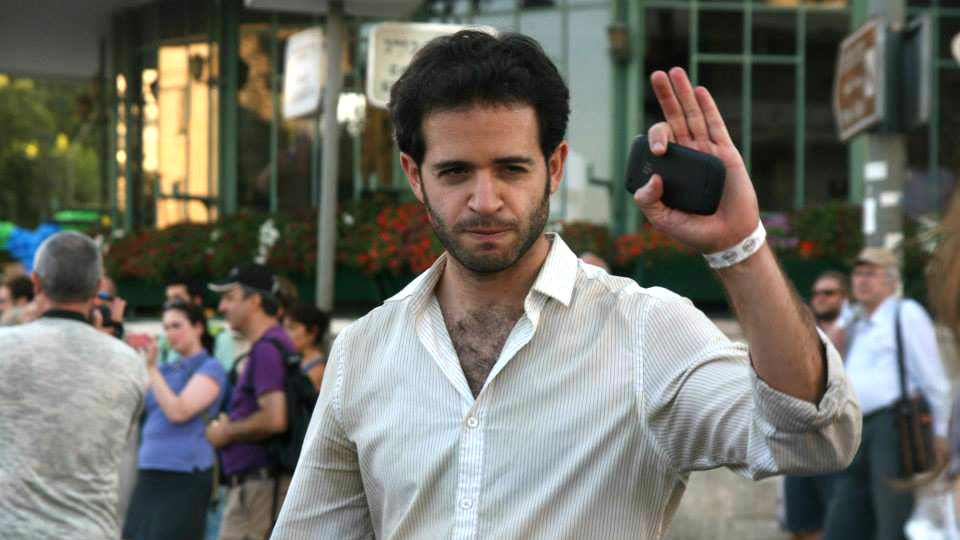
"Ahead of the March of the Million on September 4 [2011], I felt we were going to change the country. We wrote a constitution for the State of Israel, we had all these crazy ideas. At the demonstration, I was second on stage, I delivered the speech on education. I was sure a serious welfare state would be established here, that there would be a real change in the education system."
Local change: "The protest in Jerusalem did a lot of big things. Something happened in people’s hearts. People chose to interact with each other, and a lot of cooperation was created between the different movements, along with some tension as well."
National change: "At the level of policy, things have changed very little, but the people who were involved in leading the protest, our generation, felt that they had a voice, something happened to them. There were those who pushed in more anarchist directions; I was the voice that said we should be the guard at the checkpoint, the schoolteacher, the social worker in Bat Yam, to bring change from within. A lot of people, as a life choice, dedicate themselves to changing society. From within.”
Between 2011 and 2020: "There’s a lot of resemblance to today's protests. The people who’ve been hit hardest by the coronavirus crisis, the middle class and working class families, are still the most vulnerable people. The people at the top are disconnected, and it hurts. Some of my friends are really struggling through this crisis. Their stories could make you cry. We were told that only the elite can bring about change, but the true power of this nation is the change that the people can bring from below."
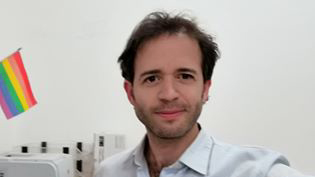
Advice to protesters today: "What the protests helped me understand is that we are allowed to be political people in the deepest sense of the word. To cry out when there is social unrest, injustice, when something bad happens to someone else. You have to join the picket line, it can really change the world."
"Our goal was to create an ideal society. Today people just want to survive"
Roi Neumann (36), communication consultant | In 2011: Member of the “Group of Eight” who led the protest at the national level, and spokesman for the protest
Protest in 2011: "About 20,000 people turned up to our first demonstration. We couldn’t believe what was happening. Dana Berger went on stage and sang Tracy Chapman's “Talkin ’bout A Revolution.” At that moment I realized we were doing something huge. Everyone was together, sang together, and we felt the masses of people. We did not understand what was happening, but we understood that something was happening."

"For me and for the folks who organized the protest, it was a mentally exhausting event. We were incredibly busy with the organizing, and we were quite emotionally disconnected from what was happening on the ground. For me at least, there were no moments of overwhelming excitement and crying."
National change:
"Before the 2011 protest, there was no public discourse about socio-economic issues outside the financial press. It was considered shameful to admit that you were in financial difficulties or that you find it hard to make the rent. It's a bubble we broke and you can feel the effect of it to this day. The involvement of civic groups in Israeli politics has also completely changed. On the other hand, the economic system in Israel has not changed fundamentally. The social gaps have not changed, and the wealth still only serves a selective few. The system is trying to make small corrections, which are essentially insufficient and don’t address the deeper issues."
"The COVID-19 lockdown period showed everyone that all those things that we warned about at the tent protests came true. There’s just no safety net for the citizens. Back then, we talked about the fact that if we miss even one paycheck, we’ll simply collapse. That's now the reality on the streets. People don’t have a social safety net, that’s what we need to fix.”
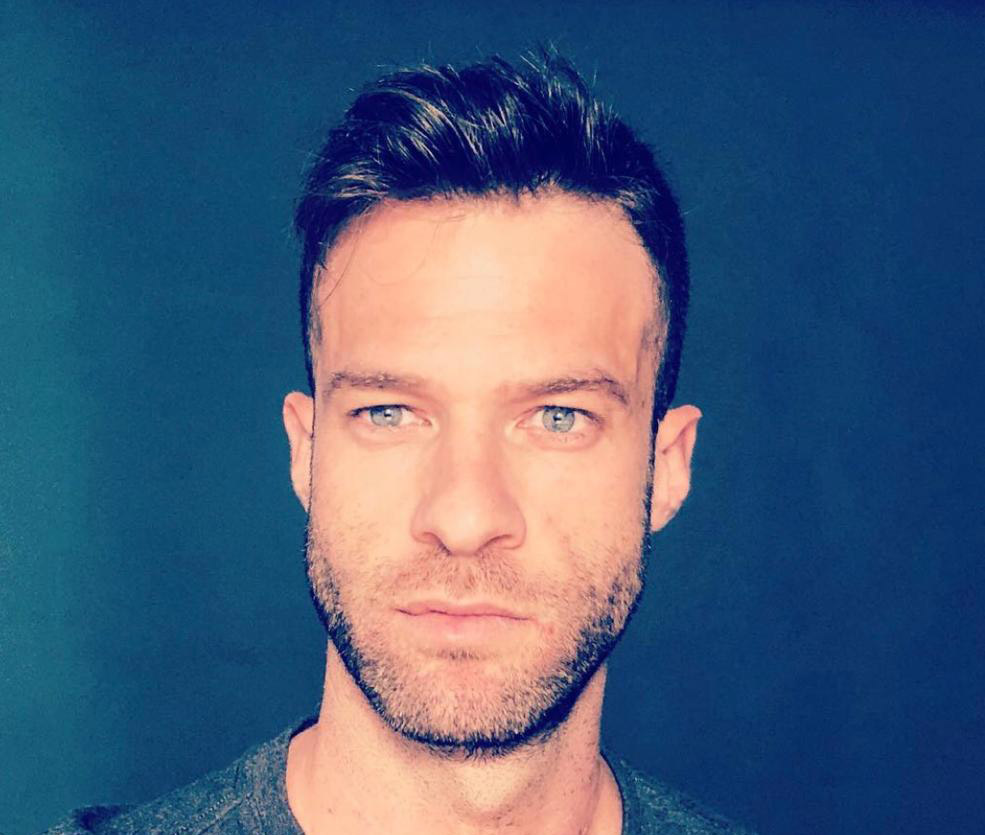
Between 2011 and 2020:
"One difference is that at the tent protests our goal was to create an ideal society. Today, people just want to survive. Another difference is that everyone is much more politically aware today. So we learned together with the rest of the nation how politics works, and today there is a feeling that everyone’s an expert on political and economic issues."
"I've been talking about the current black flag protests from the very beginning. There are some comparisons to be made. Both then and now, the feeling is that something in the system is broken and we want systematic changes, but the issues are not the same issues. From what I understand, the black flag protest is many steps backwards. In 2011, we talked about creating a better place to live, and today the protesters are fighting for the basic democracy of the state. If you’d have told me back in 2011 that this is what we would be protesting in 2020, it would have sounded completely crazy to me."
Tip for protesters now:
"Do not believe any promises and do not give up, no matter how exhausting and difficult it is. After a week in the 2011 protest, Netanyahu convened a press conference and promised to give discounts on housing. He promised, but nothing happened. You have to understand the difference between making a promise and fulfilling that promise."
"There must be trust between people, and a belief that it can and should be better here for everyone"
Shiri Keller (39), community coordinator in the Rehovot Municipality, member of the social justice community in Rehovot and a member of the Dror Israel movement | In 2011: led a protest tent camp in Rehovot
Protest in 2011: "Our encampment began a few days after the encampment in Rothschild (Tel Aviv) and was the fourth largest in Israel. There was a diverse group of people who showed up to protest. Students, young families and adults, and ethnicities from the ultra-Orthodox to Ethiopian communities. People discovered each other, found hope together. Before the protests, most people felt guilty about their condition, and very alone. We realized, through many conversations and learning sessions we organized, that this socio-economic system hurts us all. The encampment had a leadership staff, and every day there was a tenants meeting where we made decisions together. There were three families with us in the encampment. They had nowhere else to go, so they lived with us there. They stayed there up until Pesach, and then the municipality found a solution for them in the form of rent assistance until they got a more permanent solution from the Ministry of Housing."
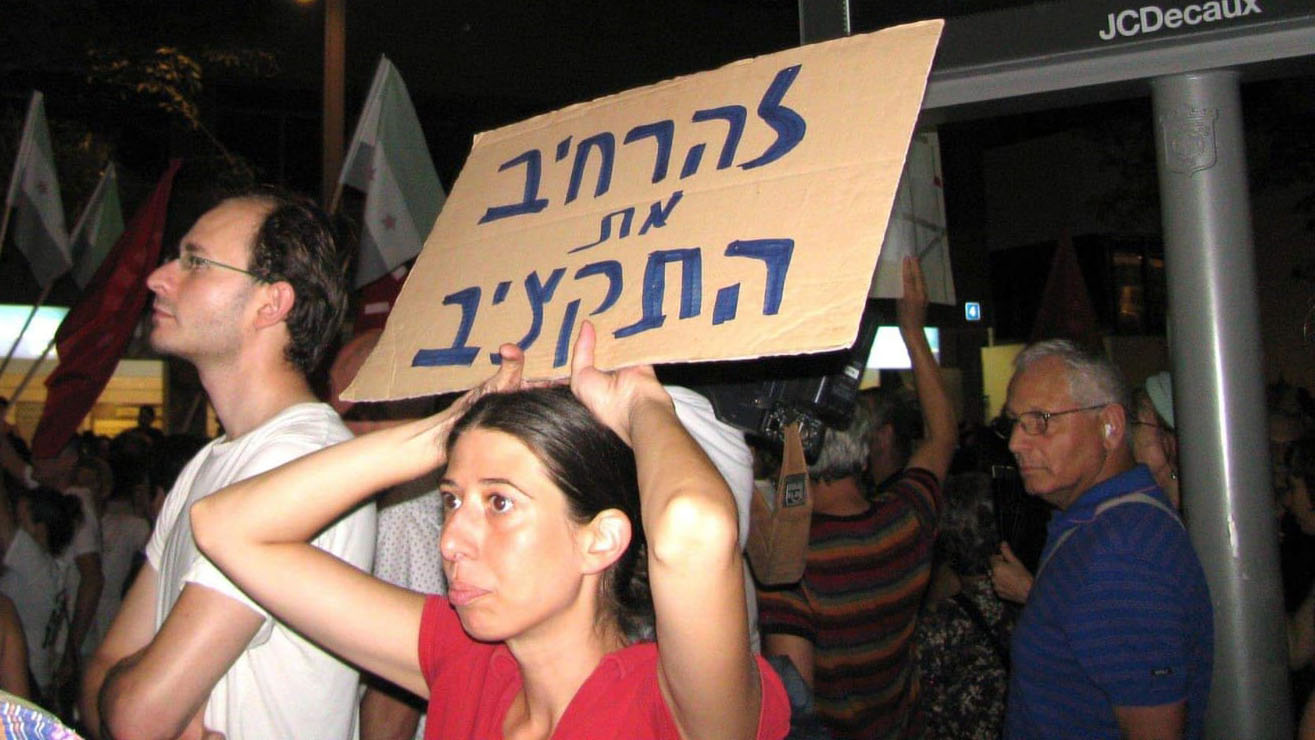
Local influence: "We gave lectures in bars, were involved in activism in the city, ran a variety of courses – economics and society for women, community organizers, and mediators. From every course sprang a core group of activists. Together, we created a wide variety of accessible cultural projects."
"During the lockdown, we set up the 'Isolation without Loneliness' project, which operated hundreds of volunteers to help elderly people in need. We were able to create it on the basis of community members, cooperating with other communities in the city and many more people."
National influence:
"The protest had two sides – one was aimed against the government’s policies, and the other aimed to change the hearts of the people. We did not manage to change government policy. But I think we did influence people’s hearts. A code of civic association was born in the community, the idea that people can organize, make joint decisions about their lives and change the world around them. There is an invisible movement of initiatives, communities, ideas and meetings. It makes a difference that there’s a community garden near the house, and that someone checks on the elderly women in my building."
"Also, there are more people who understand that economics is now a key issue. They don’t treat it like rocket science anymore, and understand that the ability to have an opinion does not depend on whether you have a degree in economics. We see that in the COVID-19 period, country after country has been boosting public spending, but our government hasn’t. At the end of the day, we have a right to say what economic policy will look like."
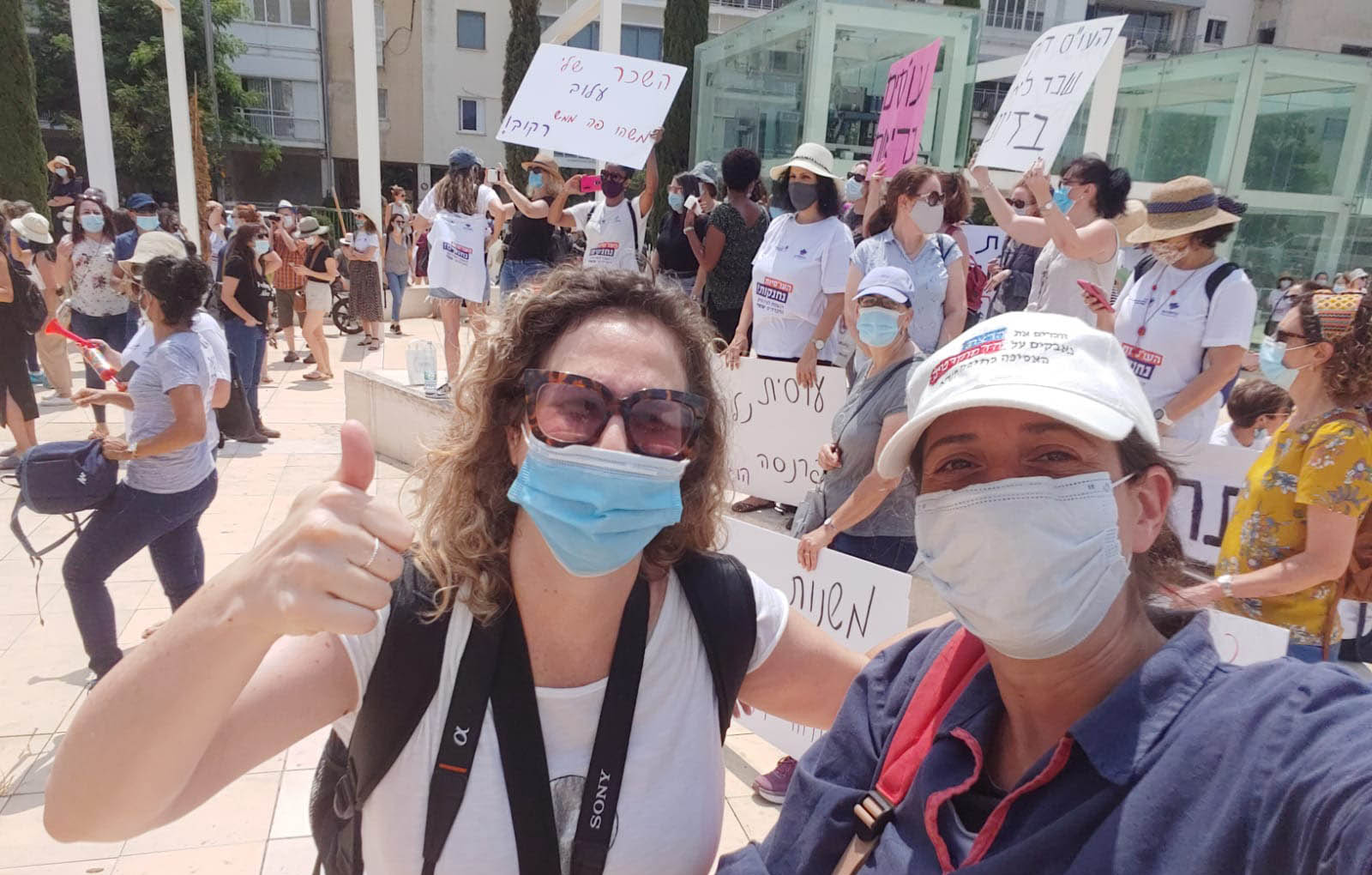
Between 2011 and 2020:
"COVID-19 has fully exposed the need for a welfare state. From the elderly who have no one to care for them, to people the crisis has pushed into poverty – we’re only seeing the tip of the iceberg. It won’t work for us if protests don’t connect people. We need trust between people, and a belief that it can and should be better here for everyone."
Advice to protesters now: "Accept with open arms the fact that this is the beginning of a journey and that there are no shortcuts. If you want to make a real change, you need to gather people one by one, and build a community of partners. Strengthen solidarity between divided parts of society by building trust with specific people."
"Keep standing your ground"
Osama Amar (37), a juvenile probation officer in Safed, lives in Peki'in | In 2011: Active in the encampment in Haifa
Protest in 2011:
"People from all over the city and the region started coming to the protest camp one by one, day after day. Within a few days, a core group of people formed and we started getting to know each other and split into action teams. It was very impressive how in such a short time we managed to organize the demonstrations. I also remember the democratic circles we used to organize in the evenings in the protest camp. That’s not what we called them, but that's what they were. These were the spaces where we could bring up the issues that had surfaced during the day, and go over the schedule of all the following days. This was done so everyone was given an opportunity to express their position and opinion. On certain issues we held votes and let the majority decide, whether it was the decision to enter into negotiations with the Haifa municipality or not, or where we will hold the next demonstration."
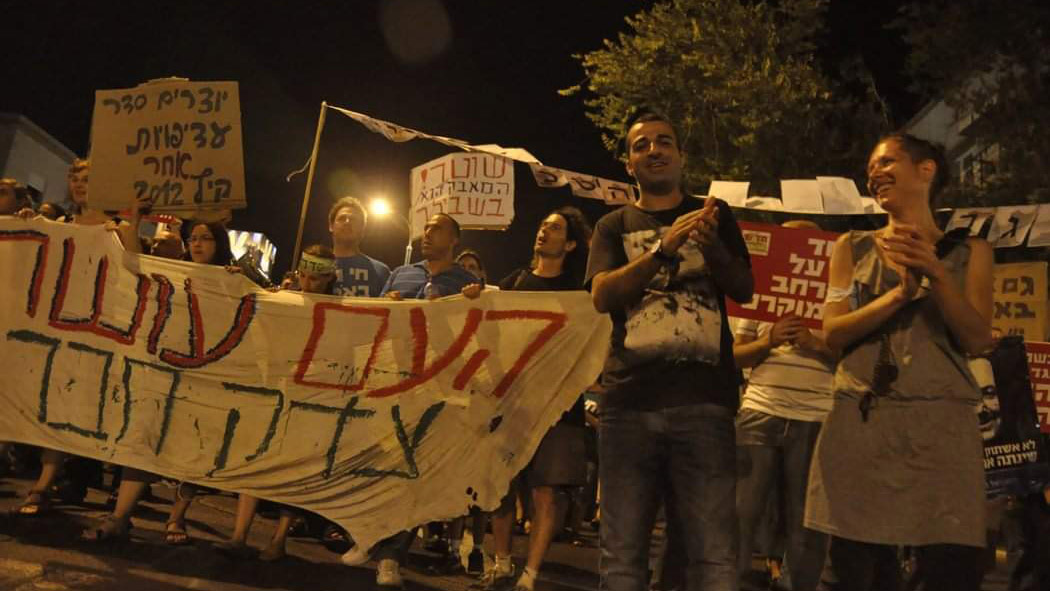
Local change: "A group of activists was formed who continued to keep in touch after the encampment disbanded. A year and two years later, we would meet up at social justice protests. I partnered up with another friend to try and find solutions for homeless people who had stayed with us in the protest camps. We went to the municipality and expedited the processes for helping them."
National change:
"We played well, but didn’t manage to create lasting change. We did not lower housing prices or the cost of living. There was very great momentum created at the protest camps, but once some of the protest leaders left the movement and went into politics, they actually moved to the opponent's court. They claim that they’re ‘creating change from within,’ but that doesn’t really work. The 2011 summer protest could have been a game-changer. Unfortunately, it fell apart overnight."
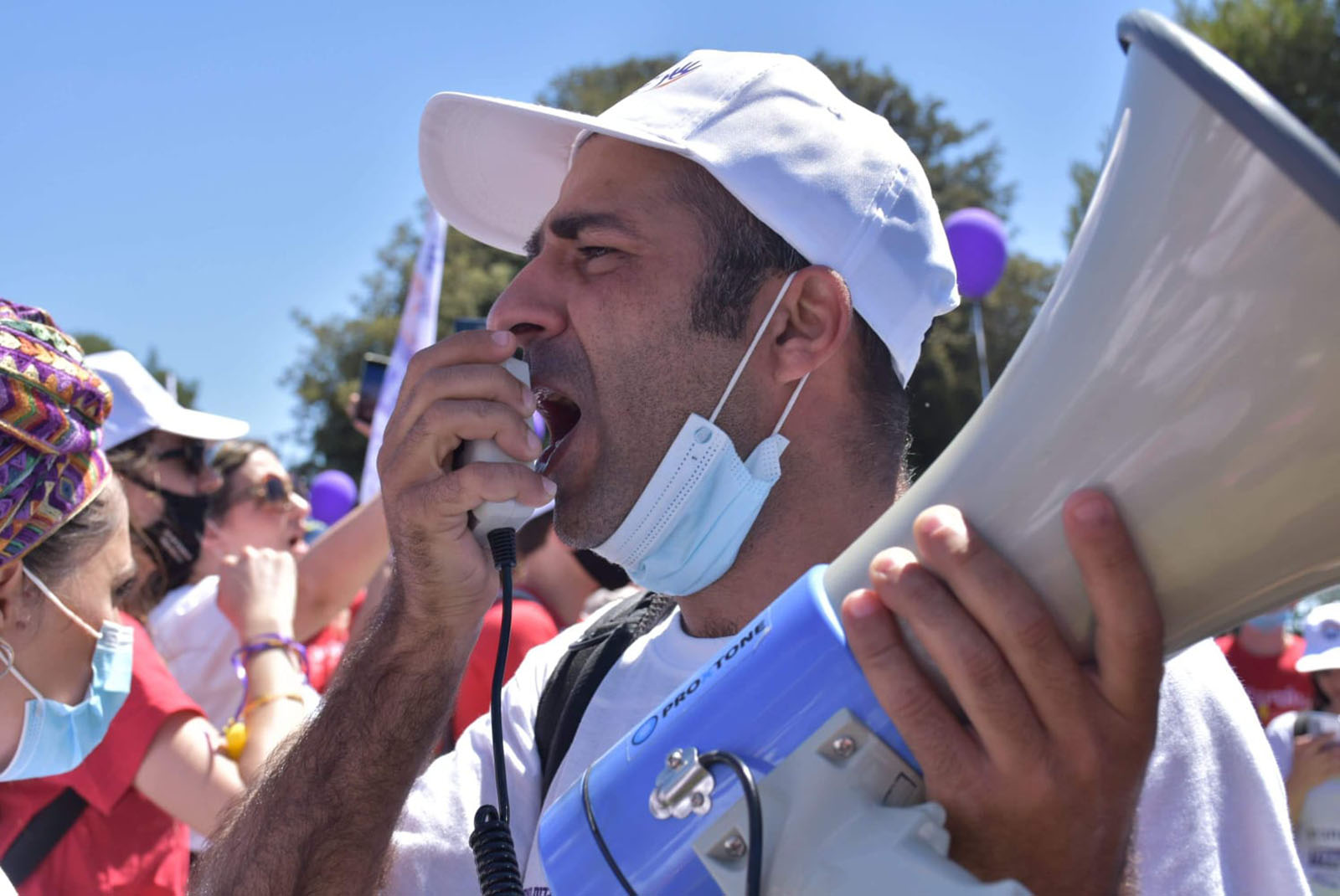
Between 2011 and 2020: "Today, I support the social workers protest. I strike, participate in demonstrations, do whatever is necessary for the struggle. I was in a protest in Kfar Ahim where the Minister of Finance lives, and in the big demonstration in front of the Ministry of Finance in Jerusalem. Today, we’re fighting not just for our rights as workers, but also for the welfare state and social services. We express the cry of the underprivileged in the voice of the middle class."
ess the cry of the underprivileged in the voice of the middle class."
Tip for protesters now: "Keep standing your ground and don’t break. Be strong, determined and motivated. It will take some time. That’s the best tip I can give."






